 W
WWilliam Boynton Butler VC was an English recipient of the Victoria Cross, the highest and most prestigious award for gallantry in the face of the enemy that can be awarded to British and Commonwealth forces.
 W
WRobert James Bye VC was a Welsh recipient of the Victoria Cross, the highest and most prestigious award for gallantry in the face of the enemy that can be awarded to British and Commonwealth forces. He was born in Pontypridd.
 W
WJohn Joseph Caffrey VC, was an Irish recipient of the Victoria Cross, the highest award for gallantry in the face of the enemy that is awarded to British and Commonwealth forces.
 W
WChristopher Augustus Cox VC, was an English recipient of the Victoria Cross, the highest and most prestigious award for gallantry in the face of the enemy that can be awarded to British and Commonwealth forces.
 W
WTom Dresser was an English recipient of the Victoria Cross, the highest and most prestigious award for gallantry in the face of the enemy that can be awarded to British and Commonwealth forces.
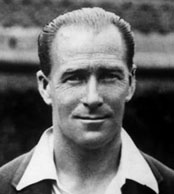 W
WAndrew Ducat was an England and Surrey cricketer and an England footballer, being one of an elite group to have represented their country in both sports.
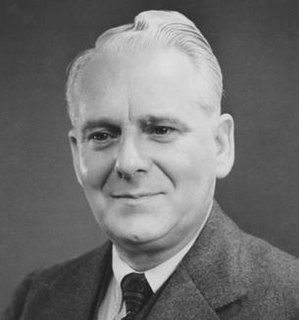 W
WHarry James Edwards was a self-proclaimed spiritual healer, teacher and author who had a career of nearly 40 years.
 W
WJoseph "Joe" Egan was an English professional rugby league footballer who played in the 1930s, 1940s and 1950s, and coached in the 1950s, 1960s and 1970s. He played at representative level for Great Britain and England and Lancashire, and at club level for Wigan from 1938 to 1950, Oldham and Leigh, as a hooker, or second-row, i.e. number 9, or, 11 or 12, during the era of contested scrums, and coached at club level for Leigh, Wigan, Widnes, Warrington and Blackpool Borough. Egan is a Wigan Hall of Fame inductee, and was a life member at Wigan, Egan later became coach of Wigan, taking them to Championship success in the 1959–60 season.
 W
WErnest Albert Egerton VC was an English recipient of the Victoria Cross, the highest and most prestigious award for gallantry in the face of the enemy that can be awarded to British and Commonwealth forces.
 W
WWilliam Charles Fuller, VC was a soldier in the British Army and a Welsh recipient of the Victoria Cross, the highest award for gallantry in the face of the enemy that can be awarded to British and Commonwealth forces. Fuller was the first Welsh recipient of the Victoria Cross in the First World War.
 W
WJohn Edmund Gardner was an English spy and thriller novelist, best known for his James Bond continuation novels, but also for his series of Boysie Oakes books and three continuation novels containing Sir Arthur Conan Doyle's fictional villain, Professor Moriarty.
 W
WCecil Redvers Griffiths was a Welsh athlete who won a gold medal at the 1920 Summer Olympics. He was subsequently barred from competing at the 1924 Summer Olympics due to a ruling that he had competed as a professional during his early career, but continued to successfully race in domestic competitions.
 W
WAlbert Halton VC was an English recipient of the Victoria Cross, the highest and most prestigious award for gallantry in the face of the enemy that can be awarded to British and Commonwealth forces.
 W
WFrederick William Hedges was a British recipient of the Victoria Cross, the highest and most prestigious award for gallantry in the face of the enemy that can be awarded to British and Commonwealth forces. A soldier with The Bedfordshire Regiment during the First World War, he was awarded the VC for his actions on 24 October 1918, during the Battle of the Selle.
 W
WThomas Peck Hunter VC was a British recipient of the Victoria Cross, the highest and most prestigious award for gallantry in the face of the enemy that can be awarded to British and Commonwealth forces.
 W
WSection Commander George Walter Inwood GC of the Home Guard was posthumously awarded the George Cross for the "...highest form of cool courage and self-sacrifice for others" he displayed on the night of the 15/16 October 1940 during the Birmingham Blitz.
 W
WWilliam Henry Johnson was an English recipient of the Victoria Cross, the highest and most prestigious award for gallantry in the face of the enemy that can be awarded to British and Commonwealth forces.
 W
WEric Henri Kennington was an English sculptor, artist and illustrator, and an official war artist in both World Wars.
 W
WHenry Edward Kenny VC, was an English recipient of the Victoria Cross, the highest and most prestigious award for gallantry in the face of the enemy that can be awarded to British and Commonwealth forces.
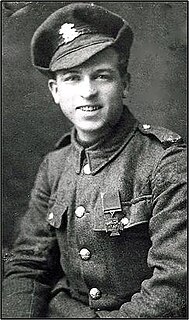 W
WHubert William Lewis was a Welsh soldier and recipient of the Victoria Cross, the highest and most prestigious award for gallantry in the face of the enemy that can be awarded to British and Commonwealth forces.
 W
WThomas Harold Broadbent Maufe VC was an English recipient of the Victoria Cross, the highest and most prestigious award for gallantry in the face of the enemy that can be awarded to British and Commonwealth forces. He was educated at Uppingham School.
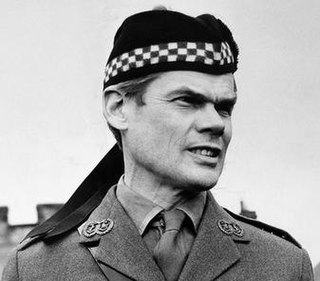 W
WColin Campbell Mitchell was a British Army soldier and politician. He became a public figure in 1967 as the commanding officer of the 1st Battalion of the Argyll and Sutherland Highlanders. Forces under his command reoccupied the Crater district of Aden which had been taken over by local police mutineers in what became known as "the last battle of the British empire". The reoccupation and subsequent control of the Crater were controversial and Mitchell resigned his army commission in 1968. Subsequently, he became a Conservative Member of Parliament and served one term from 1970 to February 1974. After participation in a failed business venture he subsequently worked as a security and military consultant. In 1989 Mitchell took a leading role in the Halo Trust, a not-for-profit organisation undertaking mine clearance in former war zones.
 W
WJames Ockendon VC, MM was an English recipient of the Victoria Cross (VC), the highest and most prestigious award for gallantry in the face of the enemy that can be awarded to British and Commonwealth forces.
 W
WJames Perry, OBE was an English script writer and actor. He devised and co-wrote the BBC sitcoms Dad's Army (1968–77), It Ain't Half Hot Mum (1974–81), Hi-De-Hi (1980–88) and You Rang, M'Lord? (1988–93), all with David Croft. Perry co-wrote the theme tune of Dad's Army, "Who Do You Think You Are Kidding, Mr. Hitler?" along with Derek Taverner, for which Perry received an Ivor Novello Award from the British Academy of Songwriters, Composers and Authors in 1971.
 W
WIvor Rees VC was a Welsh recipient of the Victoria Cross, the highest and most prestigious award for gallantry in the face of the enemy that can be awarded to members of the British and Commonwealth forces.
 W
WCharles Graham Robertson VC MM was an English recipient of the Victoria Cross, the highest and most prestigious award for gallantry in the face of the enemy that can be awarded to British and Commonwealth forces.
 W
WCharles Edward Spackman VC, MM was an English recipient of the Victoria Cross, the highest and most prestigious award for gallantry in the face of the enemy that can be awarded to British and Commonwealth forces.
 W
WErnest Sykes VC was an English recipient of the Victoria Cross, the highest and most prestigious award for gallantry in the face of the enemy that can be awarded to British and Commonwealth forces.
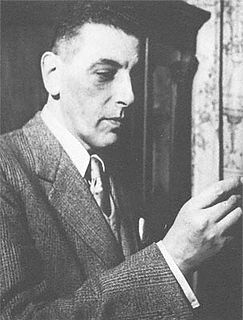 W
WFredric John Warburg was a British publisher best known for his association with the author George Orwell. During a career spanning a large part of the 20th century and ending in 1971 Warburg published Orwell's Animal Farm (1945) as well as Nineteen Eighty-Four (1949), and works by other leading figures such as Thomas Mann and Franz Kafka. Other notable publications included The Third Eye by Lobsang Rampa, Pierre Boulle's The Bridge over the River Kwai, Adolf Hitler's Mein Kampf and William Shirer's The Rise and Fall of the Third Reich.
 W
WFrank William Whitcombe, also known by the nickname of "The Big Man", was a Welsh rugby union, and professional rugby league footballer who played in the 1930s and 1940s. He played rugby union (RU) for Cardiff RFC, London Welsh RFC, Aldershot Services and Army Rugby Union, as a prop, i.e. number 1 or 3, and representative level rugby league (RL) for Great Britain, Rugby League XIII, and Wales, and at club level for Broughton Rangers and Bradford Northern, as a prop, i.e. number 8 or 10, during the era of contested scrums.